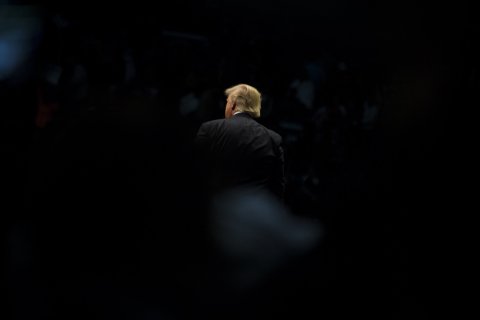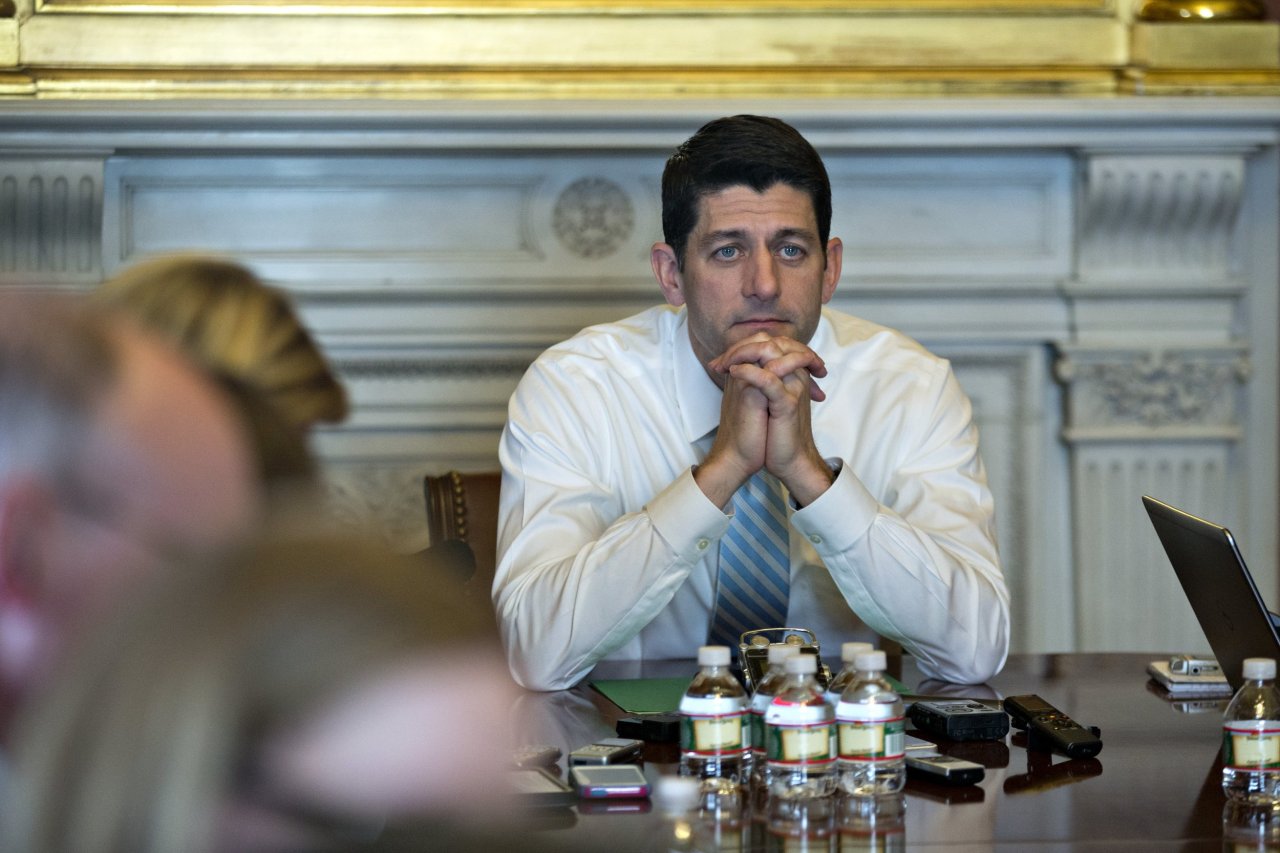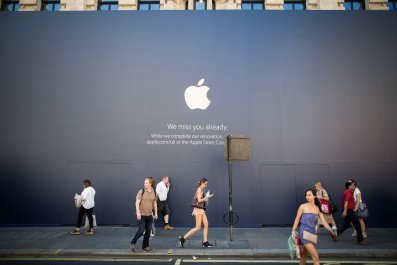Mr. Speaker,
History rarely presents the opportunity to prove our character. Usually, we stumble through an election year, caught up in petty bickering and the occasional raging controversy that soon fades from public consciousness. Few people today can identify Quemoy and Matsu, even though they were major issues in the Kennedy-Nixon presidential race of 1960. What about the Guaranteed Access Plan? Debategate? Or list any of the other bursts of fire that streak across the firmament every four years, issues that seem so important but soon burn out and are forgotten.
This is not one of those years, Mr. Speaker. These are dangerous times for America and the world. What America does in this election will affect our allies, our enemies, our children.
We have a candidate for president from your party going so far as to suggest that "the 2nd Amendment people" could stop a president from exercising the Constitutional powers to nominate judges. And that, an obvious suggestion for assassinating a political opponent, is just the latest and most unbelievable historical outrage.
As youths, many of us read in history books about people who stood by and allowed horrors to unfold, and assured ourselves we would have challenged demagogues, regardless of the consequences. Now we are adults and face our first real chance to prove that. And so, Mr. Speaker, I ask you—in the first of a series of open letters to you over the next few weeks about the dangers posed by Donald Trump and his many secrets—to do what you know you must: Condemn your party's presidential candidate. Condemn Trump as someone who does not represent the values of the Republican Party nor America. Condemn him as a danger to the United States. Condemn him to show that anyone should be disqualified for the presidency if they suggest their supporters should consider murdering public officials to achieve policy goals.
Would doing this cost you your seat in Congress? Probably. But others have sacrificed far more—those crippled while fighting tyrants overseas, those who died at the hands of racists at home while pursuing justice.
Imagine how history will view you for staying silent. If Trump is elected president, you—as the most prominent leader in the Republican Party—will be responsible for his actions. You will not be able to control him, no more than his campaign team, nor his bankers, nor his business partners could control him. As someone who first covered Trump's business dealings decades ago, I assure you that the petty bully who mocked the family of an Army vet killed in battle is not a political novice who needs only to educate himself. That hate-filled man is the real Donald Trump, the one business reporters have known for over 40 years—reckless, narcissistic, lacking all self-awareness, eager to lash out at anyone who tells him what he does not want to hear. No intervention will help; you cannot transform a wild bull into a gazelle with conversation. His business strategy—proclaim his greatness, declare that he would create the greatest and the best and the most profitable, never explain how and ultimately fail, strewing wreckage that destroys everyone who believed him—is the same one he is following on the campaign trail. And would pursue in the White House.
In decades to come, your children and grandchildren will ask, "Why didn't you do something?"
Some conservatives of character, like Erick Erickson, Jonah Goldberg, Max Boot, Lindsey Graham and Mitt Romney, have denounced Trump. They would rather their party lose the White House in 2016 than turn America's future over to an unstable man who could well gain access to the nuclear codes. Speaker Ryan, you and other Republicans who care about conservatism, who care about America, must set aside the petty differences that separate our nation's great parties and join all those fighting to stop this man. Patriotism must trump tribalism.
Incomprehensible Profligacy

"The thing you don't understand about Donald Trump is that he's mentally ill."
One of Trump's most senior executives said those words to me in the summer of 1990. I knew this person was not qualified to make a clinical diagnosis, but it was disturbing that one of the developer's lieutenants would say such a thing to a reporter and clearly mean it. A few days earlier, I had written a piece for The New York Times that lampooned Trump—who had just agreed to cut back his personal spending to only $450,000 a month as part of an agreement with his panicking lenders—and he seemed to have no idea how he came off in the story. Another billionaire was quoted saying such profligacy was incomprehensible, but what made Trump sound truly nutty was that even though the world knew his finances were collapsing, the revelation of his astonishing extravagance did not embarrass him.
"A little more moderation would be good,'' Trump said about his $450,000-a-month limit. "Of course, my life hasn't exactly been one of moderation.''
The oddness of Trump's behavior, as well as his lack of awareness that the country was making fun of him, didn't surprise me. It fit right in with all the other odd behavior he had proudly displayed to me and other reporters. I first interviewed Trump in October 1987, and it didn't take long for me to conclude there was something wrong with him. At the time, I was a novice reporter, having started on the business news section of the Times three days before. I contacted Trump's office about a filing with the Securities and Exchange Commission (SEC) he had made regarding his plans to purchase more stock in Alexander's Inc., then a prominent department store chain. At that point, Trump owned almost 1 million shares of Alexander's, so this signaled a possible takeover battle, and the stock had moved up accordingly. It was a small story, and I assumed my call would be relegated to some press flunky for a standard "no comment."
I was stunned when the man himself answered the phone, all schmoozy and complimentary, telling me how much he admired my work (which was strange, since there wasn't much of it to read back then). I wondered why he was bothering to butter me up as he bounced between declaring himself on the record and on background. He told me of the greatness of Alexander's future, the greatness of its shares, the greatness of his plans, the greatness of the American stock market and his expectations for its continued growth. He talked about the "losers" who were opposing his efforts to shake things up at Alexander's. On background, he talked about the financial benefits he stood to gain from the department store deal and instructed me to identify him in the story as "an analyst." Not knowing any better, I let him misrepresent himself that way in the story.

But it was the call Trump placed days later that convinced me the man was bizarre. That morning, the Times had published a puff piece about him written by Fox Butterfield—a talented journalist who made his name as a foreign correspondent in China. It was the kind of throwaway story most reporters write on occasion and then look back on in embarrassment. Now Trump was calling me, a 26-year-old kid, crowing about the article like a proud child showing Daddy the picture he had just drawn.
Butterfield, he told me, was the greatest journalist in America.
Trump asked what I thought of the piece, and I said a few complimentary things. I didn't want to tell him I thought the story was ridiculous, full of what I now know are Trump's typical "I am superhuman" stories, such as how he barely needed sleep. It also quoted him saying he hated wasting time speaking to the press because he was so busy with business, a particularly odd comment since he was now speaking to me for no clear reason. Then there was Butterfield's suggestion that the real estate developer could run for president someday. Nonsense, I thought.
As Trump and I chatted about the article, I tried to ask him a question about Alexander's, but he immediately lost interest and said goodbye. It was one of the strangest phone calls of my career. His hyperactive tone, his impulsiveness in phoning me, his obvious aching need for praise from a nobody like me—at that moment, I came to believe there was something seriously wrong with Trump, something that I have never seen in another of the hundreds of business executives I have met and interviewed.
Less than two weeks after that strange call, the stock market crashed, and every reporter in my section was thrown into covering the biggest business story in decades. A few days later, I was scanning The Washington Post, and I saw Trump had told a reporter there he had known the market crash was coming and had sold all of his stocks for $200 million in profits. I was stunned. I knew he was lying.
Just days before, he had told me how great the stock market was, how it was going to rise. I looked up his holdings in Alexander's—he still owned 917,967 shares. Trump lied to make everyone think he was smarter than other investors. Maybe he had sold some stocks to raise cash to buy more Alexander's stock—he had filed a document with the SEC saying he planned to do just that—but this was no "Trump's a genius" moment.
I went to an editor who was busy with an article covering the aftermath of the crash and told him that, without question, Trump was lying about his investments. The editor didn't even glance up. "Dog bites man,'' he said. "Donald Trump lies."
Over the next few years, my fellow business reporters and I marveled at the numbskullery in the Trump financial frolics, as banks and junk bond investors threw him billions of dollars in loans so he could buy up businesses he knew nothing about—casinos, an airline and the like. Financial analysis gave way to irrational exuberance for Trump, based on little more than his many pronouncements of his greatness. When the inevitable occurred and Trump could not even pay the interest on his billions of dollars in debt, his lenders found themselves in an impossible position—if they demanded he make good on all the debt he had personally guaranteed, he would file for personal bankruptcy, and the financial institutions that doled out the cash to him would go under. Trump and his lenders were standing in a basement filled with gasoline, and if either lit a match, they would both burn to death. Trump did not "outsmart" his banks, as he likes to say now. He and they had been so reckless that they had to save him to save themselves.
As his sprawling business empire fell apart in the early 1990s, other reporters at the Times had more dealings with him than I did. I always knew when Richard Hylton, who sat across from me, was speaking with Trump, because he would roll his eyes. Soon after he hung up the phone, Hylton would tell me Trump's latest whopper. But for me, the words that best summed up the financial nonsense that led to the bankruptcy of Trump's businesses were uttered in the early 1990s by the dean of financial journalists, Floyd Norris. He said that someday we all would have to explain to our children and grandchildren the bizarre story of Donald Trump, how so many banks behaved so recklessly to benefit a man who was obviously little more than a carnival barker. The answer, Floyd said, was: "You just had to be there. It can't be explained rationally."
Somehow, Mr. Speaker, we are again having to explain the success of the carnival barker, only now he is much more dangerous. Rather than being just someone who could put legions of banks out of business, he could become president of the United States and cause incomprehensible harm. Plenty of people—including members of your own party and even psychiatrists—are saying Trump exhibits signs of mental illness, as his lieutenant told me decades ago.
It is not too late to do the right thing. Condemn Donald Trump. Don't be on the wrong side of history.



















